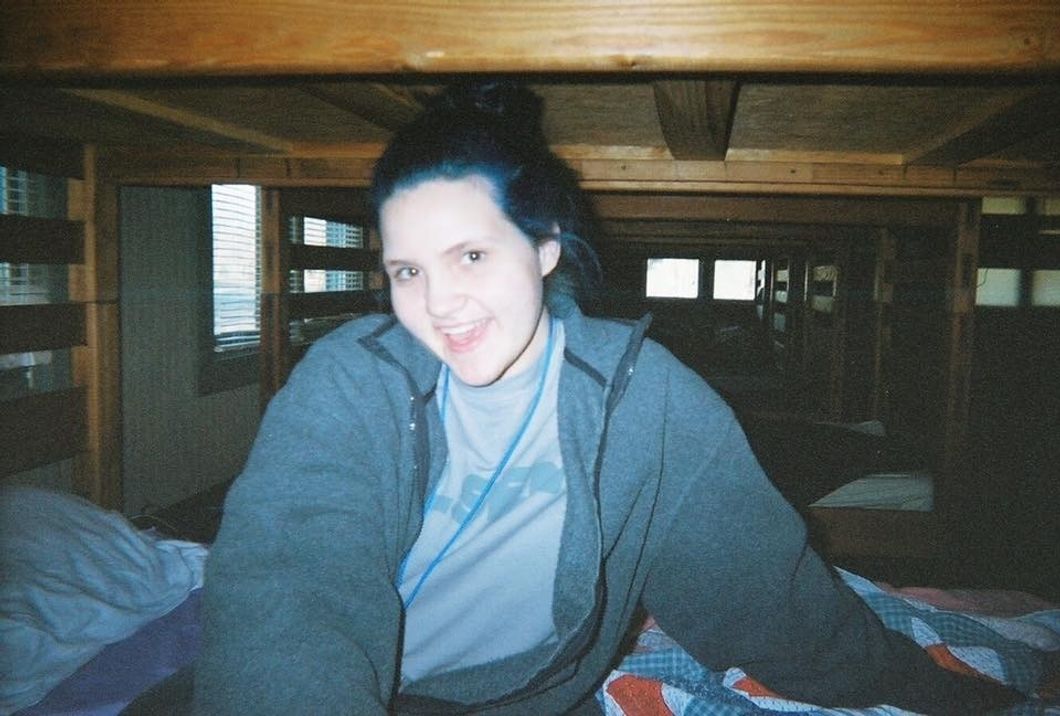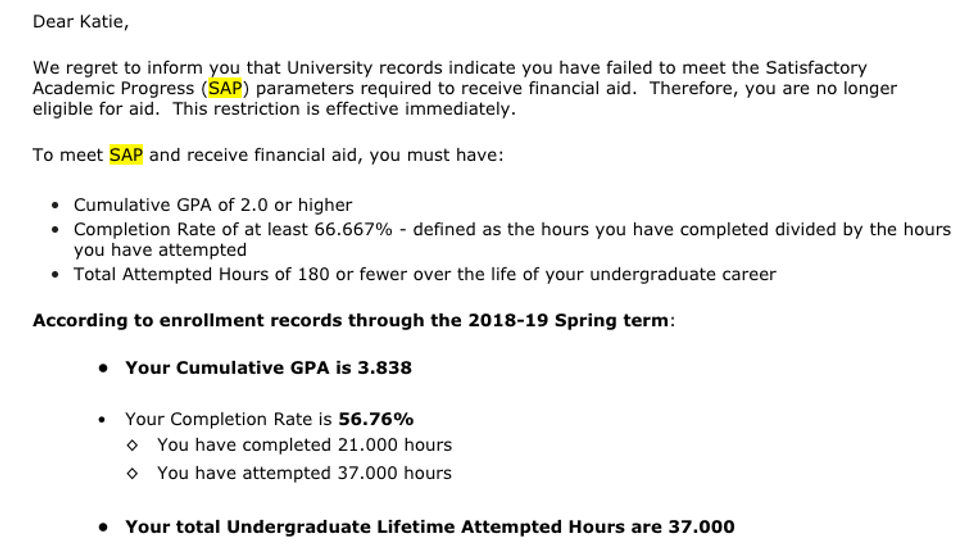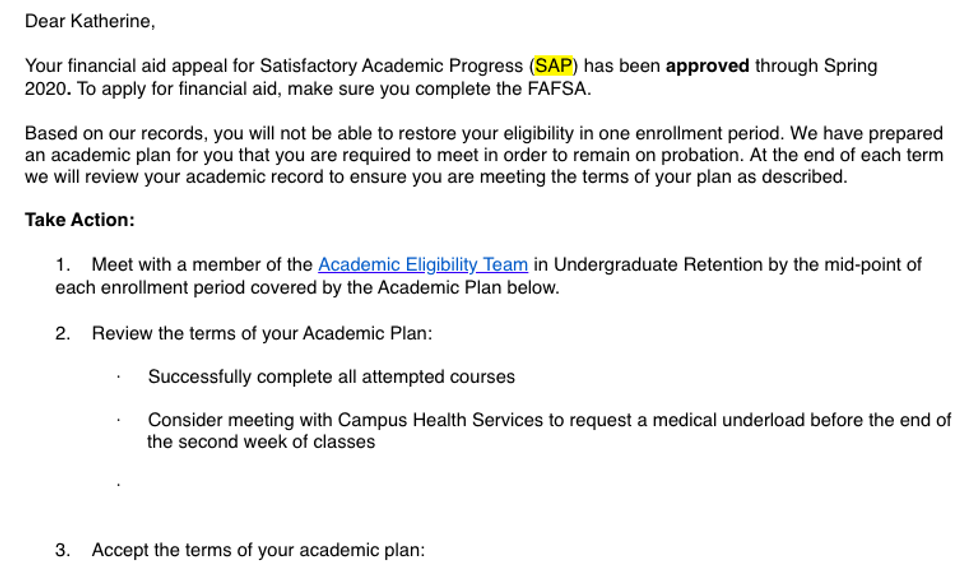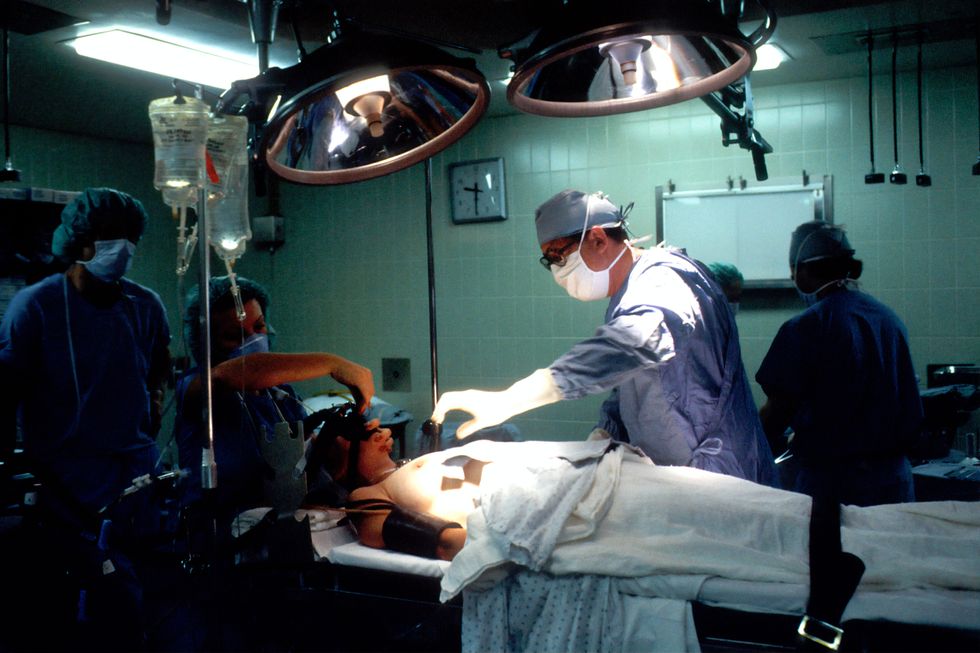Entering college is hard for everyone, but entering college with a six-year history of having an eating disorder is a recipe for disaster. Regardless of where you are in your recovery, it's easy for the eating disorder to sneak back into your life at a huge transition period — what bigger transition than the one into adulthood?
Early in my first year of college, I relapsed. Hard. But because my eating disorder didn't look like it had ever looked before, I put off reaching out for help for too long, and when I finally did, I ran into barriers that delayed my treatment even further. Because of the high demand for treatment in my college town (according to some data, as many as one in four college students have an eating disorder), I was set to wait four months for my first therapy appointment — the only available eating disorder therapist in my insurance network in the area — and a month for my first dietician appointment.
But this isn't the point. Eventually, I did have to go to a higher level of care, which I also put off as long as I could, mainly because of my scholarship to the University of North Carolina at Chapel Hill. When I eventually reached rock bottom, I begged for any way to keep my scholarship and was told that I would be able to keep it with no repercussion because of the nature of my withdrawal.
Spoiler alert: they lied.

Here's what many people don't tell you about UNC's medical withdrawal process: they don't care about the medical part at all. You have to completely withdraw from the university, losing any major, groupings, and merits you got before leaving. In my case, I lost my psychology double major which I had to re-declare and my membership in Honors Carolina, to which I had to reapply. In order to meet the deadline, I had to begin applying back to school right away while I was in treatment (stress I didn't need to be dealing with, to say the least).
But at least I had my scholarship... or so I thought.
A week before classes began, I received this email:
And so I scrambled to file an appeal and prayed it would go through in time for the payments to be due. My appeal was able to go through, but I was put on probation. Because I took a medical leave from school.
I can't even believe that I have to explain how and why this is wrong, immoral, and downright illegal, but we can start with the law.
Section 12182 of the Americans with Disabilities Act prohibits "the imposition or application of eligibility criteria that screen out or tend to screen out an individual with a disability or any class of individuals with disabilities from fully and equally enjoying any goods, services, facilities, privileges, advantages, or accommodations."
Although postsecondary schools might believe they can gatekeep against people with disabilities because IEPs and 504 plans don't apply to adults, the language of the ADA is pretty clear.
The University of North Carolina receives federal funding, so they have to follow ADA guidelines.
This experience is gatekeeping. Having to go to handfuls of offices and meetings, fill out and send off stacks of forms, file three re-applications, and then be put on probation for a semester all while I'm in intensive recovery from a debilitating eating disorder and other mental illness is gatekeeping. What kind of school is this where athletes who all but failed high school are given every opportunity to succeed but someone with an almost perfect GPA has their scholarship held over their head? What do they value?
But my GPA isn't even part of the question, it's an issue of human respect, seeing and treating people with disabilities as people and not objects for pity.
This experience baffled me so much, I thought UNC must have made a mistake. So I went to the Undergraduate Retention Office, a humiliating experience to walk into in itself as a straight-A student my whole life. What they explained to me was only worse: it was explained that if I pass this semester's classes, I'll be right on the line of being off probation. But that number, the rate of completion, remains impacted for the rest of my undergrad career. So I won't be able to withdraw from a class again, even medically, until my rate of completion is high enough to not dip below 66.67% without losing my scholarship.
But when almost 40% of people in eating disorder recovery relapse within the first two years, that just isn't a realistic expectation.
And it's clear that the people making these policies are not trained in psychiatric disabilities, or disabilities at all for that matter, because this order of operation is solely detrimental to my recovery and not helpful in any way. I absolutely do not feel supported by UNC or the office of retention, in fact, quite the opposite. I've had to decrease my course load and sign up for only easy classes which I don't enjoy as much in order to protect my scholarship. I've felt extremely isolated and unvalued. I've pondered "what's the point?" because it feels so hopeless I'll even be able to get and stay off probation and used more eating disorder behaviors than I have since before even going to treatment in the first place.
I filed an ADA complaint against the school and have been talking to lawyers, but I also doubt anything would ever happen to an institution as huge and powerful as UNC. But for now, I'm done being pushed around through different hurdles by this school and then silenced: it's time for me to speak out against this regardless of the outcome.
Who knew that "Tar Heel born, Tar Heel bred, Tar Heel dead" meant they actually want us dead?















